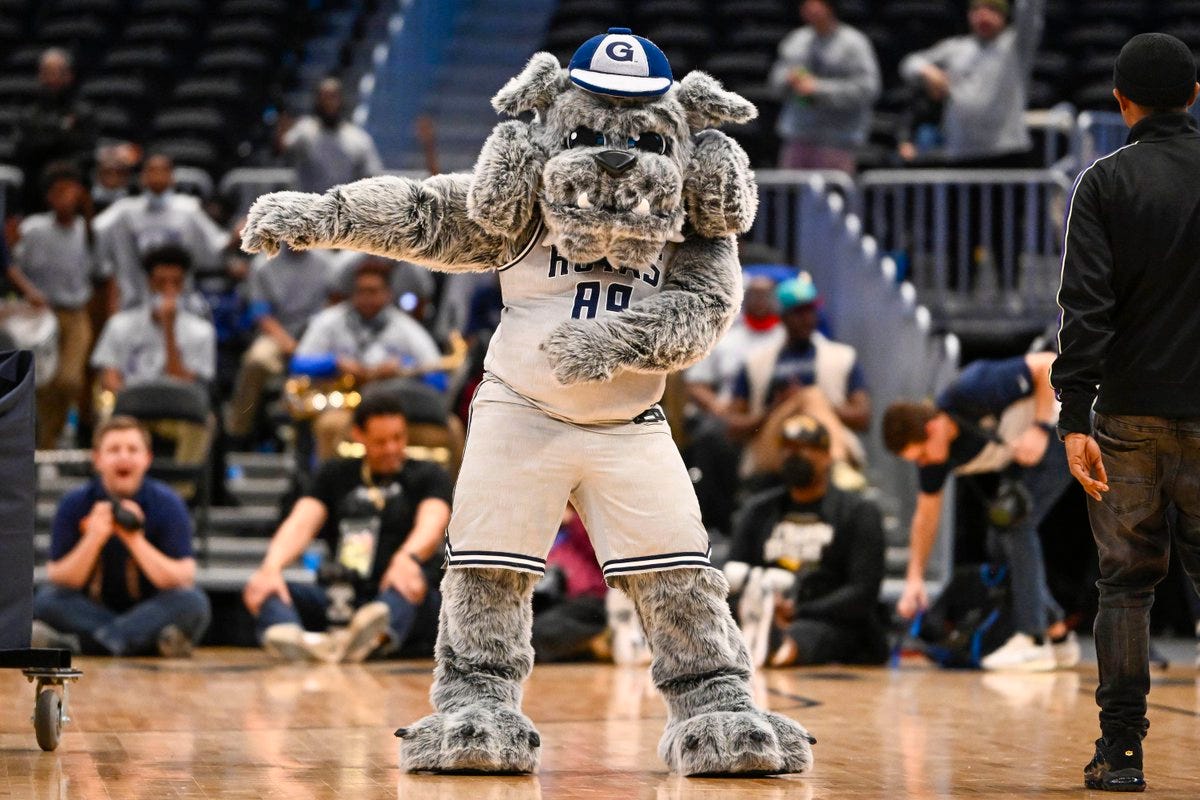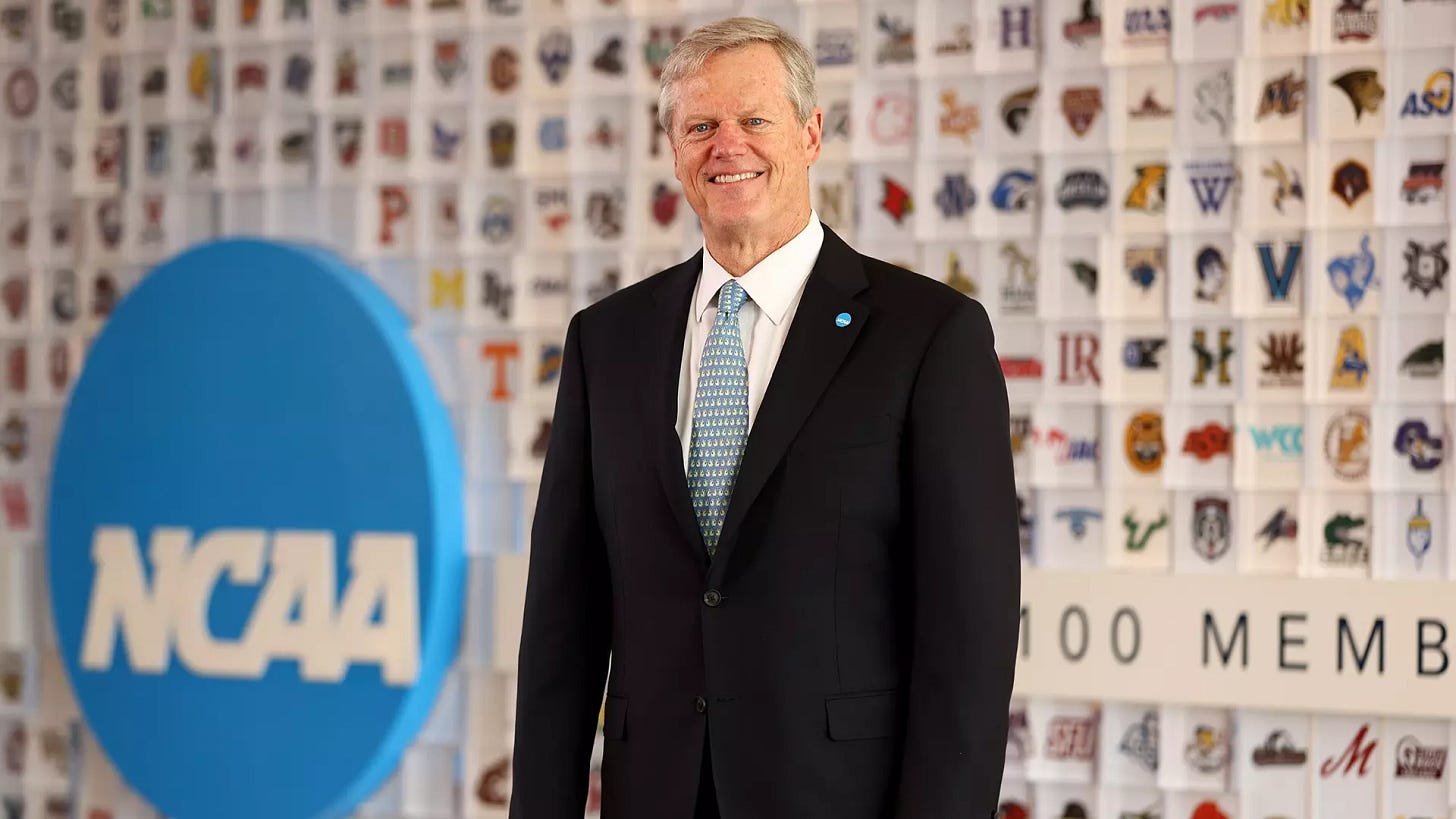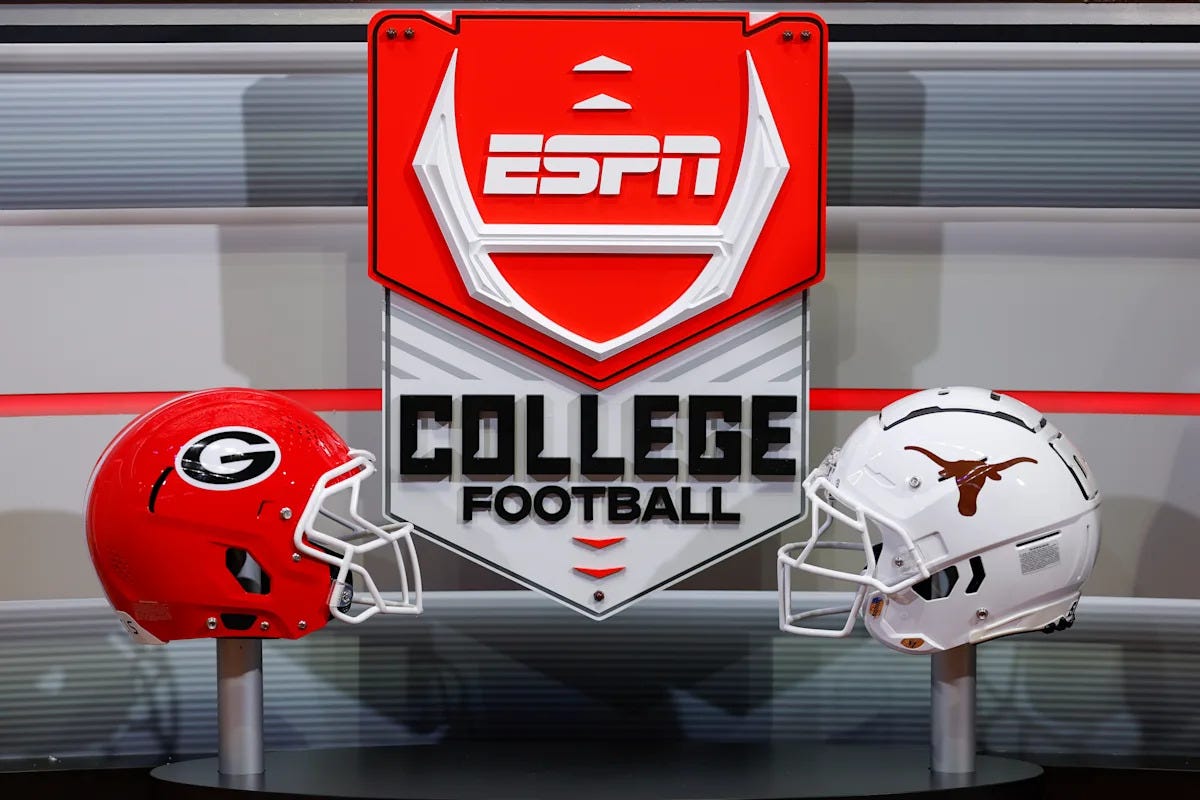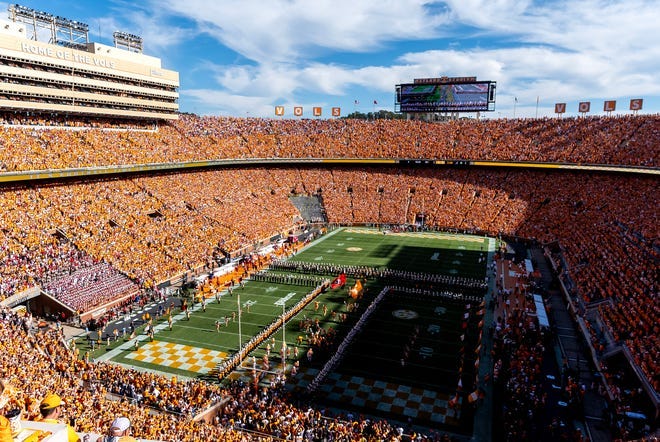The Zeigler Case, Georgetown's In-House NIL, Tennessee's New Statute, ICYMI, & More | NIL Newsletter #330
Today’s Thursday newsletter includes highlights from this week, important news from last week, and what to watch for.
This Thursday’s Newsletter Includes:
1. Zakai Zeigler v. NCAA
2. Georgetown’s In-House NIL Initiative
3. Quick Hitters
4. ICYMI: ESPN’s potential SEC Conference Game Expansion
5. What to Watch For: Tennessee’s New “Shield Law”
🏆Major News
Zakai Zeigler Goes to Federal Court for a Fifth Year—and a Projected $2-4 Million Payday
All-SEC point guard, Zakai Zeigler, filed suit in the U.S. District Court (E.D. Tenn.) seeking an injunction that would let him play (and cash in) during 2025-26.
Zeigler argues that the cap of four competitive seasons inside the NCAA’s five-year window is an unlawful restraint of trade that suppresses NIL market output by sidelining the most marketable athletes in Year 5.
He cites the Pavia (Vanderbilt) and Elad (Rutgers) football rulings that forced the NCAA to grant extra years, framing redshirts as a coach-controlled “cartel allocation” of eligibility that should be athlete-controlled instead.
Spyre Sports Group projects $2-4 million in NIL for Zeigler’s graduate season, which is an unusually detailed damages model that will resonate in future cases.
Plaintiffs say the rule undercuts the NCAA’s own academic mission by forcing seniors with remaining coursework into the draft or foreign leagues. Expect Judge Clifton Corker to weigh academic benefits (Alston precedent) against economic harms.
Big picture, if Zeigler wins a preliminary injunction, the door opens for hundreds of non-COVID seniors, especially in basketball, to file copy-and-paste TROs before fall practice.
Georgetown Pulls NIL Inside the Tent, Winds Down “Hoyas Rising” Collective
The Hilltop’s stand-alone collective, “Hoyas Rising,” will cease operations on May 30, as GU prepares to pay athletes directly once the House settlement takes effect.
Georgetown will fold deal-making into athletics, turning alumni gifts into tax-deductible contributions, which is an incentive private schools are poised to copy.
Direct control lets GU slot athlete stipends under the coming $20.5M revenue-share cap and avoid outside-party auditing headaches.
By sunsetting the for-profit collective, Georgetown sidesteps future clearinghouse questions about FMV, or donor “pay-for-play”, and locks Title IX compliance under one roof.
Supporters used to wiring funds to Hoyas Rising will now route dollars through GU’s advancement office; expect bundled NIL-plus-scholarship campaigns by July 1.
With GU providing the template, watch out for Villanova, Duke, Stanford, and Notre Dame, who all sit on deep donor rolls and may seize the same tax angle to outbid state-law shield states without legislative drama.
📌Quick Hitters:
Who runs NIL now? NCAA president Charlie Baker told the Knight Commission that the Power Four will police cap management and NIL-deal vetting through a new “College Sports Commission”—with Deloitte as the $600-and-up watchdog. Expect league-level sanctions (not NCAA infractions) and potentially discretionary fines for cap-dodging. 🔗 LINK
$2 million for a high-school tackle? ESPN’s David Pollack blasted Miami’s reported NIL offer to No. 1 OT Jackson Cantwell, warning that outsized line deals siphon cap space from quarterbacks and edge rushers and inflate injury risk ROI. The episode spotlights looming internal budget debates once hard caps kick in. 🔗 LINK
Villanova reloads with Maryland transfers. Guard Malachi Palmer and 7-footer Braden Pierce reunite with Kevin Willard, each bringing three years of eligibility—and immediate NIL leverage in the Big East’s Philadelphia media market. 🔗 LINK
ICYMI
ESPN’s Proposal for Adding a Ninth Conference Game to the SEC Football Slate
ESPN is willing to pay an additional $50–80 million to the Southeastern Conference (SEC) to expand its conference slate from eight games to nine. This proposal has not yet been formalized, and the exact amount ESPN is willing to offer remains unclear.
The idea of expanding the SEC's schedule to nine games was discussed in the past but postponed, mainly due to the upcoming expansion of the College Football Playoff (CFP) to 12 teams and the additions of Oklahoma and Texas to the league.
The 2024 season marked the SEC's first season under its exclusive media rights deal with ESPN and ABC. The debut season was very successful, with eight of the 10 most-watched teams in college football coming from the SEC, strengthening ESPN's commitment to the conference.
SEC Commissioner Greg Sankey has expressed support for a nine-game conference schedule, citing its potential to increase interest in conference games. However, he emphasized that the move must not diminish other opportunities or negatively affect the CFP selection process.
Sankey highlighted that the expansion to a nine-game schedule is being carefully considered in light of how conference losses impact CFP selection. The SEC is analyzing how the strength of schedule and the number of losses affect teams’ chances of making the 12-team Playoff.
Sankey indicated that the SEC may make a final decision regarding the nine-game schedule during the SEC Spring Meetings in Destin. He mentioned that gathering more information on CFP selection criteria and how losses are weighed is crucial before finalizing the schedule format.
Sankey emphasized the need for balance, stating that while a nine-game conference schedule could be beneficial, it must not result in fewer opportunities for teams to qualify for bowls or the CFP. The SEC aims to ensure that changes align with the broader goals of maintaining Playoff competitiveness.
What To Watch For: Tennessee’s New “Shield Law” Collides with a Power-Conference Loyalty Pledge
Knox News reports the SEC, Big Ten, ACC, and Big 12 have circulated a draft agreement requiring schools to honor future House-era pay caps and to waive their right to sue, on pain of expulsion from the league.
Tennessee’s May 1 statute lets schools ignore roster limits, salary caps, or NIL-clearinghouse denials that “lessen free competition,” and forces the NCAA to cover any damages. The pledge is the league’s attempt to nullify that escape hatch.
While booting charter member Tennessee seems unthinkable, the threat could block the Vols (and Vanderbilt) from playing conference opponents or sharing CFP/TV revenue—an existential deterrent. In other words, Conference expulsion = real leverage.
Requiring schools to waive litigation rights may itself be an anticompetitive agreement; watch for state AGs to claim the pledge violates the Sherman Act.
Unless Nashville amends the law or the SEC softens the pledge, Tennessee faces three options: (1) sign and neuter its statute; (2) refuse and dare the SEC; (3) litigate, triggering another high-profile Tennessee v. NCAA skirmish on the eve of House implementation.
If Tennessee ignores the $20.5M cap and channels extra money to football, women’s-sports plaintiffs could file class actions alleging sex-based pay gaps, dragging the Department of Education into the fight.
Thanks for Reading!
Keep up to date on all of our newsletters and content by checking out past Optimum Sports Consulting Newsletters and following us on Twitter!










